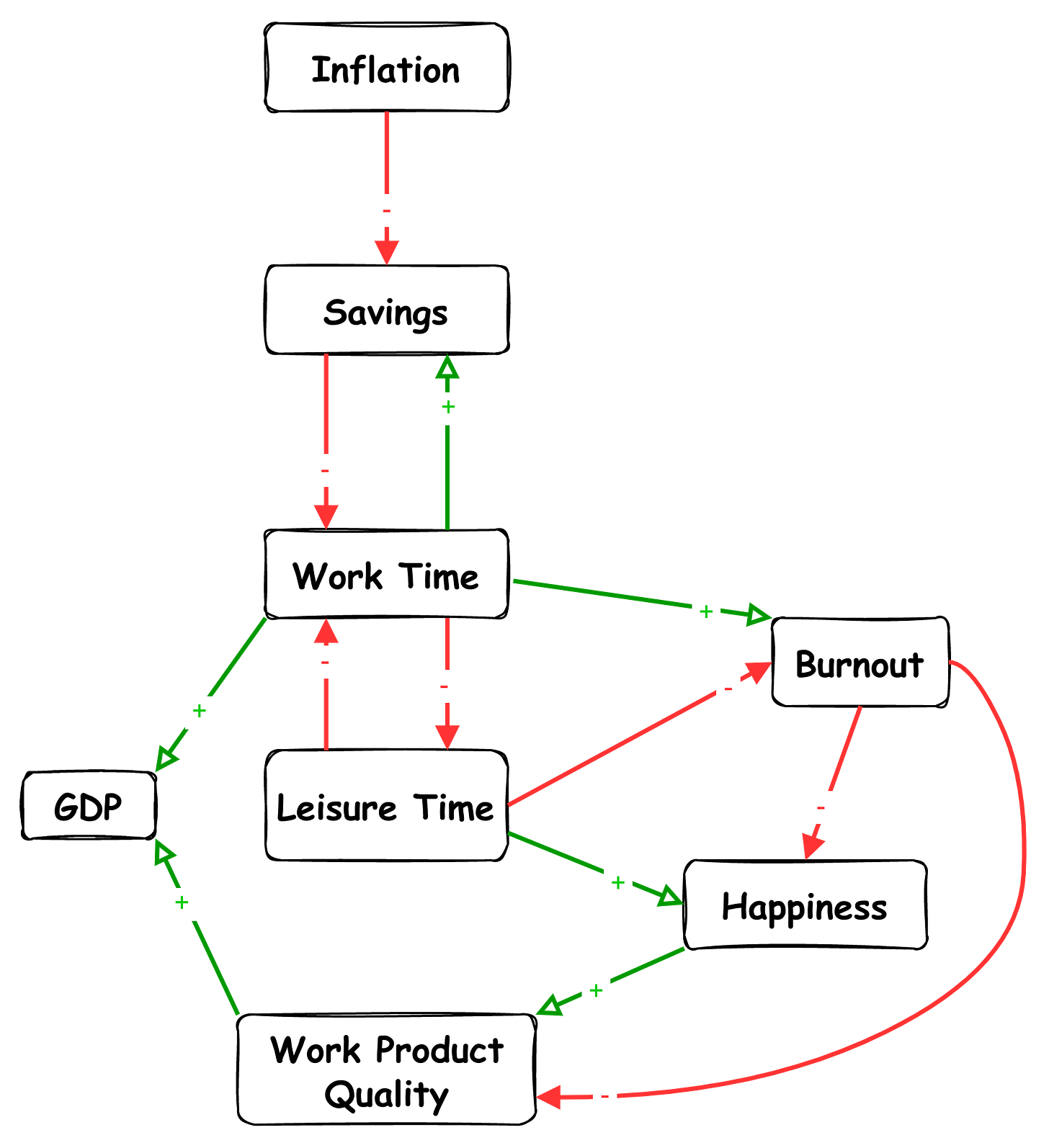Does Inflation Increase Wealth?
That’s the question asked in a recent WSJ article (“Retirees’ Re-Entering the Labor Market Isn’t ‘Good for the Economy’”). I sketched out the following causal loop diagram as I read the article. (Read this article for help on following causal loop diagrams.)
I added a few elements to build out just why people might value their leisure time more than the work needed to pad a saving account. The affect of the pandemic stimulus money reflects the relationships in the causal loop diagram. When the government was putting more money in people’s pockets then they could acquire by working, of course they opted for the happiness and stress-free life of leisure. Human nature wins. Again. The article concludes:
“The returning workers may have more money, but, based on their own revealed preference, the leisure they had to forgo was of even more value. That decision is good for the economy, only if we define “the economy” merely as maximizing GDP.”
There’s the GDP economy and there’s everyone’s personal economy. They are certainly related, but operate according to different rules.
Image by Peggy und Marco Lachmann-Anke from Pixabay



